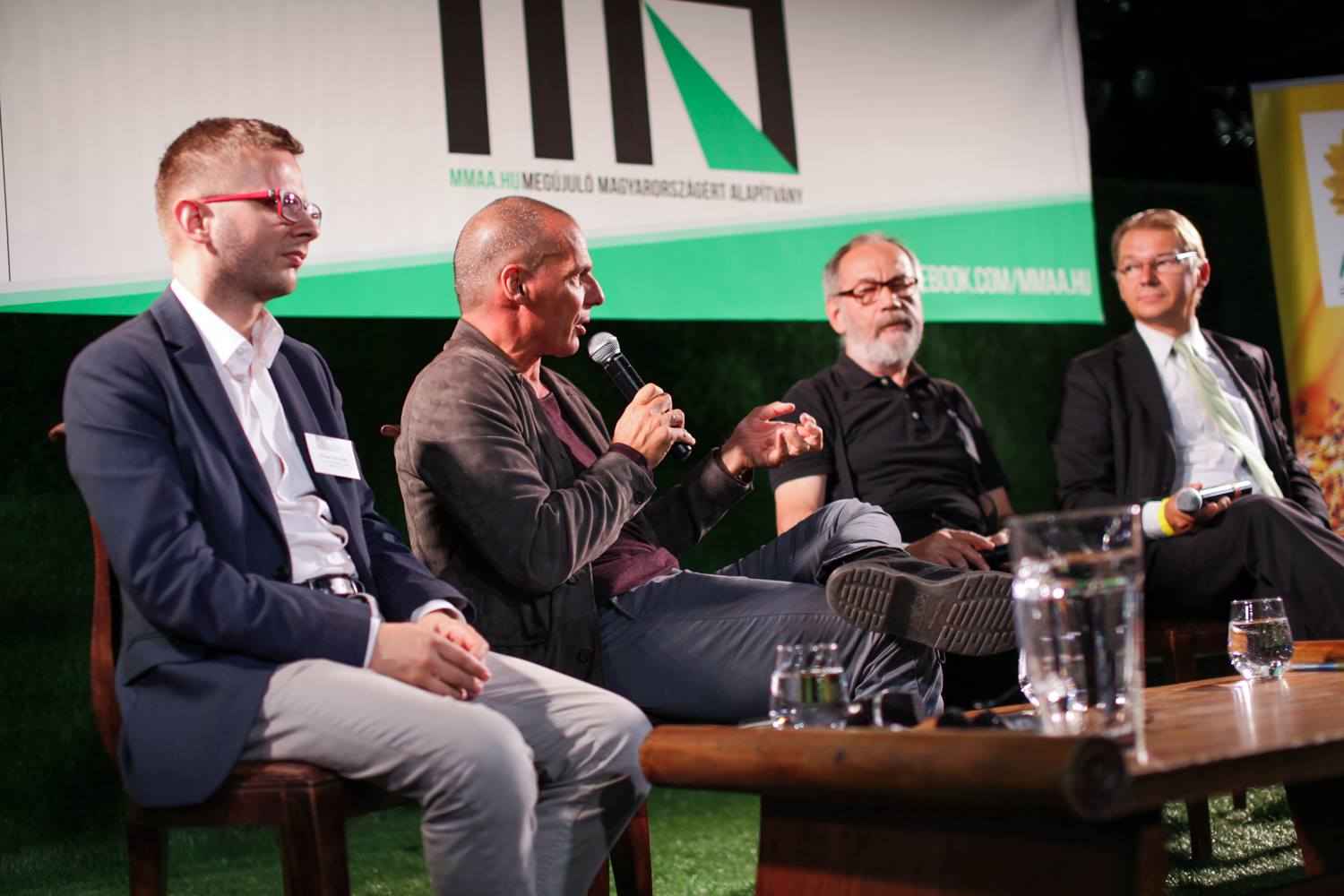A Central-European perspective on why progressives must unite

With the shadows of far-right parties snapping at Europe’s heels, now is the time for progressive movements to stop the infighting, but instead pull together and stand united.
Personally, as an activist living in Central Europe, I find it a great relief that Jeremy Corbyn got re-elected as the Labour leader. I have no doubt that his victory will positively influence my political reality even though it is geographically separate. This is not because he is the best politician to lead the party (although I believe that to be true) or because it shows that a small minority cannot undermine a movement by staging coups against their democratically elected party’s leader (although I also believe that to be true). It is because Europe, as a whole, cannot afford for progressive socialist parties to keep falling apart at the seams and clearing space to those on the opposite side of the political spectrum.
Perhaps it is difficult from the insular realities of the UK to appreciate the bigger geopolitical games which are being played out on the continent. I am writing this article to counter something that I call the ‘Central and Eastern European blind spot’, a weakness that stops us from seeing political events like the Labour leadership struggle in a wider context. By describing that bigger picture as I see it from here in Central Europe, I hope to help activists in the UK appreciate the importance of their efforts and inspire them to find ways of working together not just with each other, but also with those of us living abroad.
I confess to being appalled at the attacks that were leveled at Jeremy Corbyn throughout the summer. I have been shocked by these in the same way as I am shocked by Pope Francis being attacked by people calling themselves Christians. However, I have ceased to be surprised. In this day and age, when capitalism is collapsing rapidly, it is ‘logical’ that its contradictions will stand out even more than before (spoken like the true Marxist that I am!). However, I think that it imperative that we learn how to how to avoid similar attacks within movements that are meant to be progressive (like the Green Party), even if we attack our leaders in a well-meaning effort of making those movements more progressive. It is a fiendishly difficult conundrum. How to push for better thinking while not killing off those who don’t think as well as we would like them to? How to see that what we consider to be better thinking can quickly morph into bullying? These are questions that every movement, including the Green Party, must wrestle with on a daily basis.
While we need to grapple with those questions constantly, spending too much time on how to improve our own movements, at the expense of wider coalitions with movements that are either different or less ‘advanced’, can, at times, become outright self-indulgent and dangerous in precisely the same way as Brexit is self-indulgent and dangerous. The trouble is that often we don’t appreciate the significance, positive or negative, of our own actions, and the ripple effects they have outside of our immediate circle of influence. For example, even the smallest of political convulsions in the UK which, for better or worse, still has remnants of its imperial power, are magnified hugely and reverberate as toxic after-effects in many other countries around the world. It is a sad fact of life that everyone here still looks to the West for guidance and inspiration and policies which are introduced in the West affect everyone in Europe. Most of Central and Eastern Europe is depopulating at an alarming rate because our best and brightest are working in London, Berlin or Paris; and when those bright youngsters are physically attacked as a result of Brexit, then their home countries suffer. But the cause and effects do not stop here.
To return to that blind spot – how many people busy focusing on party politics in the UK know: that, in Poland, the woman’s right to choose is about to receive the final nail in its coffin; that the Visegrad countries (Hungary, Poland, Czech Republic and Slovakia) are mounting a sustained attack on all European institutions; that, in Slovakia, fascist paramilitary groups patrol trains terrorising the Roma population; that, in Hungary, the party with the only chance to challenge the far-right Orban government is the fascist Jobbik, and that, on the eve of a crucial referendum on migrant rights, no effective progressive political opposition exists to turn the tide. All these recent changes, while years in the making, have become worse at the same time as Brexit becomes a reality, thus destabilising the whole of Europe, and emboldening the far right in particular across the whole continent. But the question is – in the UK, how high on the agenda are these wider issues as opposed to who is next in the firing line domestically?
I recently attended an inspiring conference on the future of Europe where Yanis Varoufakis spoke on behalf of DiEM 25, calling for an even wider alliance of forces that can rescue Europe from itself. DiEM 25 is not a political party, but a wide umbrella for all those who cannot afford to let European institutions slip into oblivion and leave out in the cold the many ordinary people who depend on them. How many of the political parties in the UK, except perhaps the Greens, are standing up for wider coalitions and alliances, rather than smaller and smaller internecine factions? Now, so close to political and environmental catastrophe, it is high time to heed these calls for unity and leave aside our minute differences, or at least find better and more constructive ways of dealing with those differences, instead of tearing apart whole political movements like the Labour party has done recently. We urgently need to learn how our own personal vendettas at the door and join in with those who are asking for more comprehensive movements capable of defending the rights of the many. Take the progressive alliance that Green Party leaders are proposing we speed up: this is the time to learn how to make it happen rather than spend months discussing whether we want it in the first place.
I have difficulty understanding the detail of how exactly those two initiatives (DiEM 25 and the proposed UK-wide progressive alliance) will succeed in democratising our societies from within – the task seems enormous and fraught with too many pitfalls to mention. However, I think that we must allow them to try and support them as much as we can. From where I stand, I believe that, to preserve our chances of a functioning society while reaching for one that is radically different from the old, we must be willing and able to work with all those that even vaguely stand on the same side of the political spectrum as ourselves. It may be frustrating and discouraging and many of us want to opt out of the system altogether, or dream of direct action that will bring down capitalism in one fell swoop. However, if we give up on the current political system or the imperfect movements already in existence, in the vain hope that a newer and better movement will save the day, we give up on a big part of our power as activists and we let down a huge number of people who, through no fault of their own, are not yet where we are in terms of political understanding.
To take this one step further – if we cannot heal the grievances and animosity that separate us as progressives, what chance do we have of healing much bigger issues which separate us from the many people who do not believe in Green politics or socialism? In the words of one of the inspiring speakers at this conference about the future of Europe, it is the 23rd hour. This was brought home to me at the weekend, when, one week before an incredibly dangerous and useless government referendum, a bomb went off in central Budapest. I spent most of Sunday trying hard to keep in touch with my Muslim friends who lived not two streets away from the blast, hoping to remind them that they are important to me even as they live in a country where attacks on Muslims are an everyday occurrence. Meanwhile, one of the smallest Hungarian opposition parties (ironically called ‘Together’) managed to split yet again into two factions, presumably bringing the number of members in each faction down to about 300 individuals. If we cannot get over our tiny differences now, it will be much harder to do so once we are living in the shadow of much more repressive governments on both sides of the Atlantic. We must start working on the minutiae of how to build new coalitions that can stand the test of time, rather than forcing apart those that our predecessors have gone to so much trouble to bequeath to us.



Just remember that it will not necessarily bring you the results you want, as history shows: http://greensocialistalan.blogspot.co.uk/2016/08/a-recent-history-of-progressive.html
Also, you should not bring too many parties into an alliance either. And the representatives of such an alliance still need to be competent in all the right areas to be in it to win it.